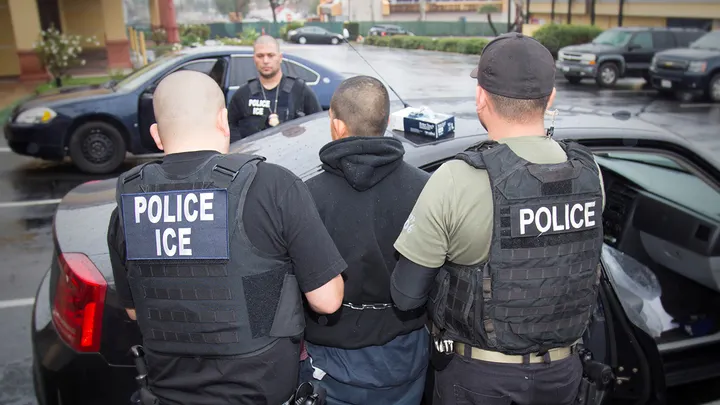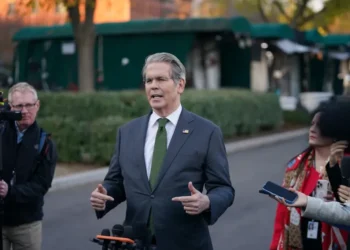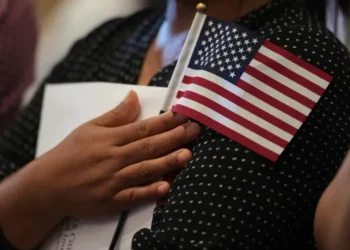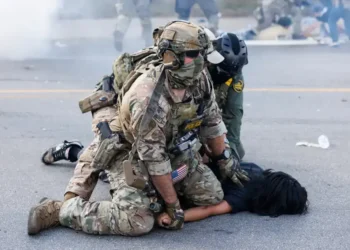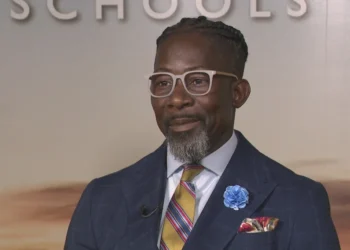Los Angeles Passes Sanctuary City Ordinance After Trump’s Election Victory
In response to President-elect Donald Trump’s victory and his promises of mass deportations, Los Angeles city lawmakers have voted to adopt a formal sanctuary city ordinance. The 13-0 vote, passed on Tuesday, ensures that Los Angeles will not provide any city resources or personnel to assist federal immigration enforcement.
The ordinance was introduced by City Attorney Hydee Feldstein Soto and Mayor Karen Bass, with input from immigration groups. Council members Hugo Soto-Martinez and Monica Rodriguez, who chaired the council’s Civil Rights and Public Safety committees, expedited the vote by waiving the matter from their committees.
California has been a sanctuary state since 2017, with the passage of Senate Bill 54 (SB 54), which prohibits local law enforcement agencies from using resources to investigate, detain, report, or arrest people for immigration violations.
During the debate on the ordinance, many public speakers voiced strong support for the sanctuary measure, emphasizing the need to protect immigrant communities from the “unimaginable cruelty” of potential deportation raids. These raids, they argued, could lead to family separations and target migrants who come to the U.S. seeking work. Others, however, raised concerns about the strain the policy could place on city resources, especially as Los Angeles grapples with a homelessness and housing crisis.
Sanctuary cities like Los Angeles typically refuse to cooperate with federal immigration authorities, specifically the U.S. Immigration and Customs Enforcement (ICE), by not honoring detainer requests. These requests are used by ICE to take custody of individuals for deportation. In some cases, jurisdictions that do not cooperate with ICE may release individuals back onto the streets, sometimes without informing ICE. Some individuals released in this way have been known to re-offend, including committing violent crimes.
The vote comes two weeks after President-elect Trump defeated Vice President Kamala Harris in a contentious election campaign, during which he pledged to tighten border security and carry out mass deportations, especially targeting criminals who had entered the country illegally.
Tom Homan, former acting director of ICE, and a key advisor to Trump on immigration policy, has called for mass deportations, stating that the focus should be on public safety and national security threats.
Former Los Angeles Mayor Eric Garcetti issued an executive directive in 2019 that provided protections for immigrants. While Los Angeles has followed sanctuary city guidelines, the ordinance had not been codified into law until now. Additionally, the Los Angeles Police Department (LAPD) mandates that officers do not inquire about a person’s immigration status or make arrests based on legal status.
LAPD Chief Jim McDonnell has also stated that the department will not participate in immigration enforcement.
The Los Angeles County Republican Party has criticized the sanctuary city ordinance, claiming it would protect criminals who have entered the country illegally. “A country without secure borders isn’t a country at all,” said LACGOP Communications Director Rozanne Hodge, adding that sanctuary protections should not extend to individuals who have committed crimes after entering the U.S. illegally.
Hodge pointed to examples such as drunk driving, robbery, sexual violence, assault, and even murder, stating that such criminals should not be shielded from punishment.
Trump’s victory has sparked a nationwide response, with officials in several cities and states vowing to resist deportations. For instance, Boston’s Democratic Mayor Michelle Wu stated that her city would not cooperate with deportation efforts under the incoming Trump administration. Similarly, Arizona’s Democratic Governor Katie Hobbs announced that her state would not assist with Trump’s “misguided” plan for mass deportations.
California Governor Gavin Newsom also pledged to fight against the Trump administration, declaring that the state would not allow its values and laws to be undermined.
This move by Los Angeles, along with the broader push in California, is part of an ongoing effort to protect immigrant communities and challenge the policies of the incoming administration.
This article was rewritten by JournosNews.com based on verified reporting from trusted sources. The content has been independently reviewed, fact-checked, and edited for accuracy, neutrality, tone, and global readability in accordance with Google News and AdSense standards.
All opinions, quotes, or statements from contributors, experts, or sourced organizations do not necessarily reflect the views of JournosNews.com. JournosNews.com maintains full editorial independence from any external funders, sponsors, or organizations.
Stay informed with JournosNews.com — your trusted source for verified global reporting and in-depth analysis. Follow us on Google News, BlueSky, and X for real-time updates.
